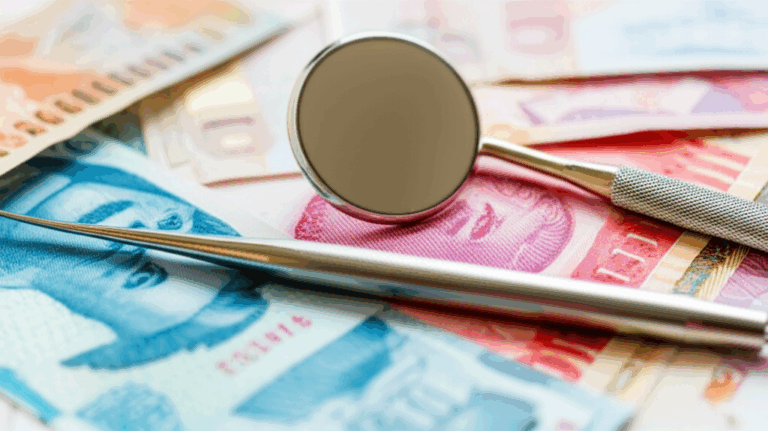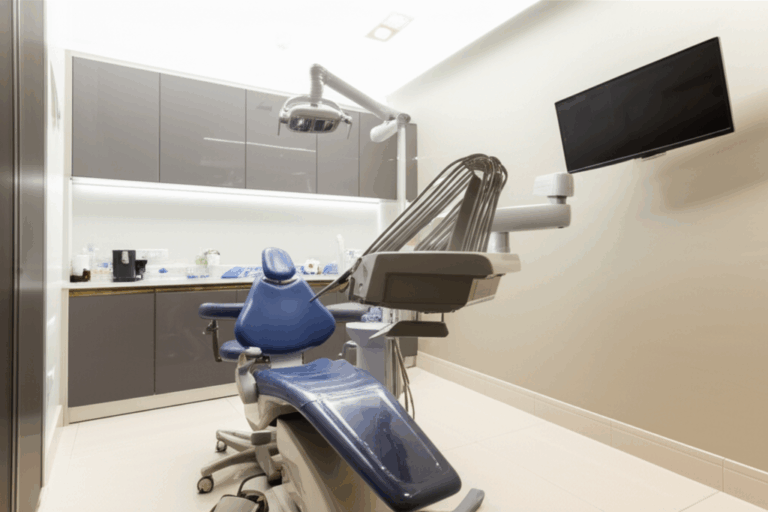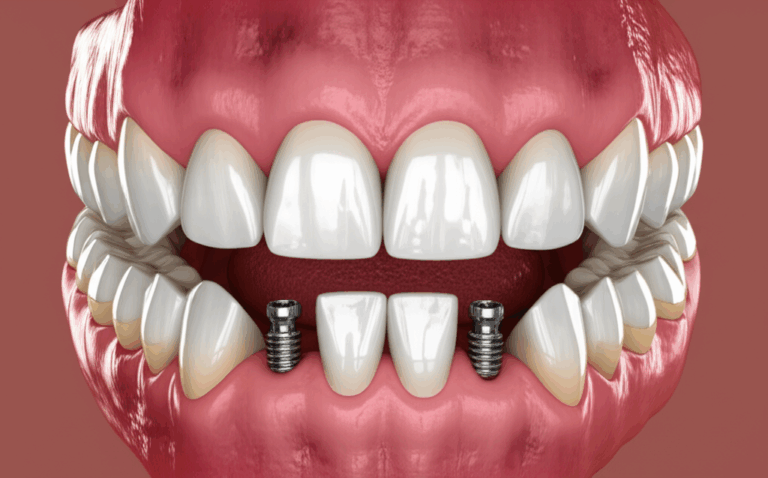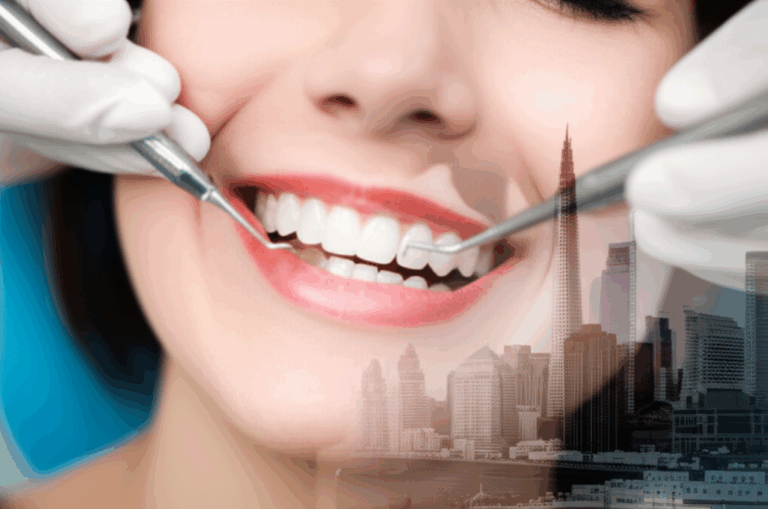
Does CHAMPVA Cover Dental Implants? My Personal Experience Navigating CHAMPVA Dental Benefits
Table of Contents
- VA Dental Insurance Program (VADIP)
- Private Dental Insurance: Weighing My Options
- Dental Schools, Community Clinics, and Charities: Hunting for Savings
- Financing Tricks: Stretching My Dollar Further
Introduction: My Journey with CHAMPVA and Dental Implants
When I found out I could get CHAMPVA because a family member is a disabled veteran, it felt like a load off my shoulders. I thought my health coverage problems were gone—at least for regular health stuff. That all changed the day my dentist told me I needed dental implants to fix two teeth that weren’t going to make it.
Like lots of people on CHAMPVA, I had one big question: Does CHAMPVA pay for dental implants?
If you’re here, you probably want a straight answer, not a bunch of complicated rules. So here’s the truth I found after making calls, doing research, and dealing with it myself: CHAMPVA almost never pays for dental implants, or even for normal dentist visits. But don’t give up—there are a few small exceptions and some other ideas I found after a lot of testing and learning.
Let’s break down everything I found out about CHAMPVA dental benefits, dental implants, what’s not paid for, and how I finally managed to move forward.
CHAMPVA Dental Benefits: What’s Actually Covered?
No Routine Dental Coverage: Why I Hit a Wall
CHAMPVA (which stands for Civilian Health and Medical Program of the Department of Veterans Affairs) really isn’t set up for dental work. I learned this the hard way. It’s mostly about health coverage for family and survivors—it doesn’t really care about your dental needs. So don’t expect them to pay for regular cleanings, fillings, or crowns.
When I called my CHAMPVA case manager to ask about costs for cleanings or exams, the answer was super clear: “No, that’s not a CHAMPVA-covered benefit. Normal dental things aren’t included.” It hurt. Felt like a door slammed in my face right away.
Dental implants? They’re considered big, special devices for eating and looking better, and CHAMPVA’s rules put those in the “not covered” pile—right there with dentures, bridges, and even wisdom teeth removal. So, if you have normal dental problems, the money comes out of your own pocket.
Rare Exceptions: When Dental Care Sneaks In
But there’s a twist that confused me at first. CHAMPVA does sometimes pay for some dental work, but only if it’s because of a serious health problem or accident.
Here’s what I learned after going through the CHAMPVA handbook (all of it!) and talking with a few different people at CHAMPVA:
- Accidental Injuries: If your teeth or jaw were hurt in an accident, and fixing things needs dental work, CHAMPVA might step in. Like, if a car accident breaks your jaw, they might pay for jaw or tooth repair as needed.
- Mouth Medical Issues: If you have something like a tumor or need mouth surgery because of a disease or infection, CHAMPVA could pay but only if it’s truly tied to a health problem they already cover.
- Part of Another Treatment: Sometimes, if you need dental work because of another health job (like pulling teeth before an organ transplant), CHAMPVA covers it as part of the bigger medical need.
Even with these, only the most needed dental care gets covered. Normal dental care, including implants, still isn’t paid for unless your case is totally out of the ordinary.
Dental Implants and CHAMPVA: The Frustrating Truth
Why Dental Implants Aren’t on the Menu
Here’s why CHAMPVA won’t pay for implants, even if they seem really important to us:
- CHAMPVA calls dental implants “prosthetic devices.” That just means, to them, implants are for things like chewing, talking, and looking better—not really saving your life.
- They only pay if the dental work is medically needed—not just because it’s better or more comfortable.
- Implants are pricey, hard to do, and usually seen as something to make life nicer, not something you must have.
My dentist said implants are a “luxury solution,” which didn’t make me feel great. But that’s what CHAMPVA sticks to.
Are There Any Loopholes? (What Ifs)
The only way CHAMPVA might pay for implants is if something really big happened:
Like, you’re in a bad accident—all your front top teeth are knocked out, and your jaw is broken. If fixing your face and mouth means you have to have implants (not just “it would be nice to”), maybe they’ll pay.
But you’d have to:
- Collect lots of paperwork and letters from doctors, not just your dentist.
- Show that regular options (like dentures) just won’t cut it, for medical reasons.
- Get pre-approval from CHAMPVA before you do anything.
I’ll be honest—I’ve never met anyone who actually got implants paid for by CHAMPVA. Even my dentist was doubtful. It’s not likely at all.
How I Looked for Affordable Dental Implants as a CHAMPVA Beneficiary
Here’s where my real adventure started. I wasn’t willing to quit. I needed implants for my health, comfort, and to feel good about myself. If CHAMPVA wouldn’t cover it, I had to find another way.
VA Dental Insurance Program (VADIP)
My first good idea was the VA Dental Insurance Program (VADIP). VADIP gives veterans and CHAMPVA people the chance to buy better dental coverage.
Here’s how it works:
- VADIP is a separate plan from CHAMPVA. You choose to sign up and pay a monthly fee yourself.
- You pick a plan from private companies like Delta Dental or MetLife.
- After waiting (usually about a year), big dental things—sometimes including implants—are partly paid for (about 50%), up to a yearly max ($1,000–$2,500 usually).
Enrolling in VADIP meant I had to save up, pay every month, and wait the required time before big treatments. Still, it was my best option to not pay everything by myself.
Tip: Before you sign up, ask both the insurance company and your dentist, in writing, what’s covered for implants and how long you have to wait.
Private Dental Insurance: Checking My Choices
VADIP is one way, but I also looked at private dental insurance. Many of these did about the same: after waiting, they might pay half the cost of implants, up to a limit each year.
- Most plans call implants a “major service.”
- There’s a wait—no instant coverage for implants.
- Each year has a max payout, so you’ll still have to pay a lot yourself.
If you work, check what plans your job offers. Sometimes company dental plans are better. If not, some independent plans are okay, especially if you need other dental work too.
Dental Schools, Community Clinics, and Charities: Hunting for Savings
When I saw implants cost over $3,000 per tooth at my usual dentist, I had to find another option. Someone told me about dental schools.
Here’s what I found:
- Dental Schools: Dental students, watched by their teachers, do the work. It’s slower, but costs way less—maybe even half as much or more. If you can wait, you can save big money.
- Community Dental Clinics: Some towns have clinics on a sliding scale, based on your income. Call around—help is out there, but you might have to wait your turn.
- Charities or Missions: Rare, but sometimes groups offer free clinics for implants if you really need it. Not easy to find, but worth a quick internet search.
For bigger jobs—like crowns, bridges, or dentures—working with a crown and bridge lab or even a special implant dental laboratory through your dentist may save you money and give you better results.
Financing Tricks: Spreading Out Payments
Even after discounts and insurance, I still owed money. My dentist offered a few ways to help:
- Office Payment Plans: Break the big cost up into monthly steps, like 6 or 12 payments.
- Dental Credit Cards (like CareCredit): If you pay it in six months, you won’t get hit with extra fees. But be sure you read all the rules.
- Medical Loans: Not something I want to recommend, because fees add up fast.
I made a spreadsheet, checked what I could pay each month, and made sure I wouldn’t get in trouble. With good credit, these payment options can help, but double check your budget first.
CHAMPVA’s Claims and Prior Authorization Process: What I Learned
Trying to work with CHAMPVA’s rules and paperwork was already tough for health benefits. Trying to talk with them about dental stuff? Almost impossible.
But if you ever have one of those rare cases when they’ll pay for dental work:
- Get Pre-Approval: Don’t skip it! If your doctor or dentist thinks you could qualify, they need to send in a full request to CHAMPVA before you start anything.
- Keep Every Paper: I kept every x-ray, scan, and any letters. You might need all of this for an appeal.
- Follow Up a Lot: I called CHAMPVA regularly. Paperwork gets lost fast.
Here’s what I learned: If you don’t get pre-approval, you don’t get paid back—even if someone on the phone says “it should be fine.”
Takeaways: Making Peace with CHAMPVA’s Dental Coverage
After months of calling, searching, and running numbers, I had to accept the truth. CHAMPVA isn’t dental insurance. Dental implants—unless it’s a once-in-a-lifetime emergency—are your job to pay for.
What helped me deal with it:
- Be real with yourself: Don’t expect coverage that’s almost never coming.
- Try every option: VADIP, private insurance, dental schools, payment plans—all helped me at least a little.
- Ask others for advice: I joined some forums where people talked about what worked. What works for one person might not work for you, but you can find ideas.
Need more info about dental implants, how they work, what to expect, or choices like bridges or dentures? Check out this guide.
And if you want to know about other dental work—crowns, bridges, or dentures—working with a reliable lab can help your results and costs. The dental lab your dentist uses really matters!
Frequently Asked Questions about CHAMPVA and Dental Implants
Does CHAMPVA ever pay for dental implants?
From everything I’ve seen and was told, CHAMPVA almost never pays for dental implants. The only time you might get covered is if the implants are really, truly needed because of a covered accident or sickness, and even then, it’s super rare.
What dental stuff does CHAMPVA pay for?
CHAMPVA only pays for dental work if it’s:
- Because of an accidental injury (like breaking your jaw in a crash).
- Needed for another health treatment (like pulling teeth before cancer care).
Normal care—cleaning, fillings, crowns, bridges, implants—is not paid for.
What can I do if I need dental implants?
- Join VADIP and find a plan that includes implants (after waiting).
- Look for private dental insurance.
- Visit dental schools or community clinics for cheaper treatment.
- Use payment plans or dental credit cards.
Will a VADIP plan help with implants?
Some will pay part of the bill after waiting, up to a yearly limit (usually $1,000–$2,500). It won’t make them free, but it cuts down what you pay yourself.
Can I argue if CHAMPVA says no?
Sure, you can appeal, but unless your case is something really rare (like a huge accident), I wouldn’t bet on winning.
Final Thoughts
Trying to figure out CHAMPVA and dental implants taught me a lot about being patient and not giving up. If you’re in the same situation as me, just breathe, look at all your choices, and ask for help when you need it. There’s always some way to move forward—even if it’s not what you hoped for.
Thanks for reading, and good luck with your dental care!
If this helped you, please share it with someone else on CHAMPVA who might be stuck too. And remember: you’re not alone!
Need more information about dental restorations, reliable dental labs, or advice on implants? Here are a few resources:
Your smile and your peace of mind are worth the work.








